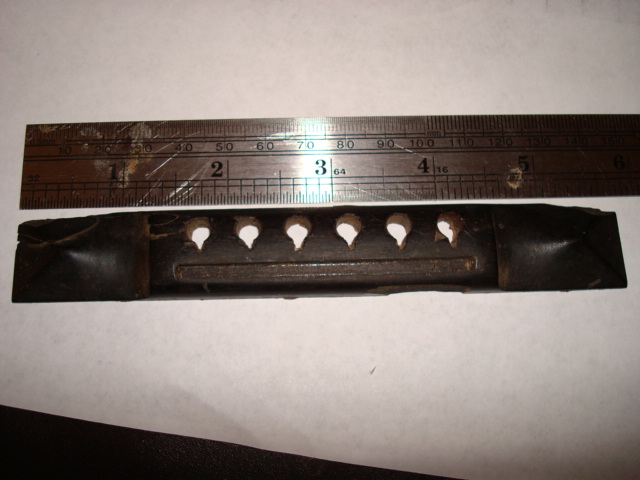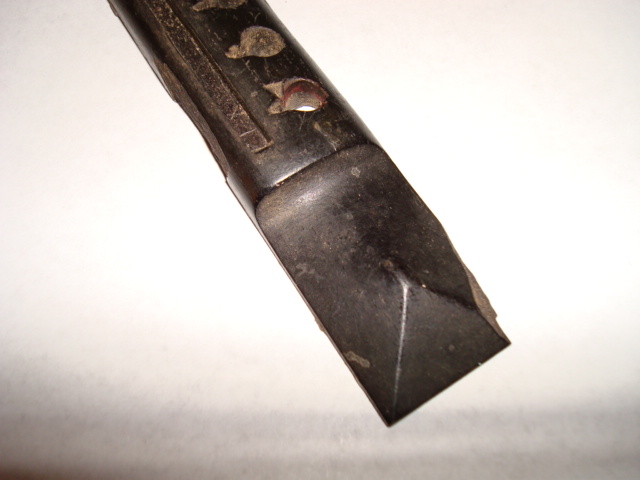Alright. I picked this little one up new years day. The size is 2 1/2 and the style is between a 22 and 24. Besides what is wrong I can not believe how good of condition it is in. The original bridge is missing(in a picture I got from the family from 1892 it was original) but no top cracks. There are two side cracks that are too small to take a picture of and that repair will be seamless and easy. There are two cracks running up the fingerboard from the bottom until the 12th fret. The neck also needs to be set. Today I took off the replacement bridge which was pealing up, and carefully(not careful enough) took the neck off. I heated the fingerboard loose, but by the time steamed the neck a little of the fingerboard glued back on and stayed(it was cracked right next to it) I was really hoping to be able to get the neck off with fingerboard attached completely. Here are some pictures and some questions. Pictures first.
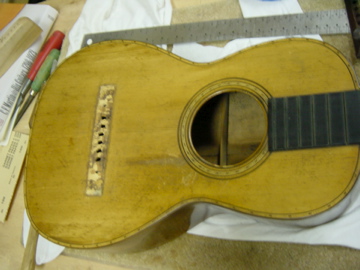
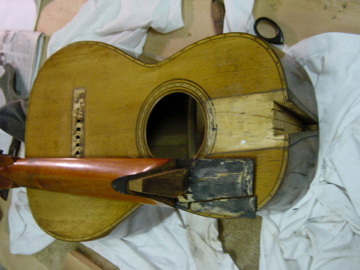
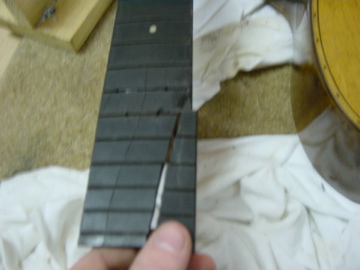
Ok. I think I can attach the broken off piece and stabilize it. Would any of you do so and use the original fingerboard? Please opinions are a good thing here! I have all of teh original bar frets -2 also ready to go back home. Also, the neck angle needs to be kicked back more, but the top is a little sunk, so it would play fine until after the twelfth fret. I am sort of at a loss what to do here, I could kick it back and shim underneath(which I dont want to do), kick it back and deal with the bad action after the twelfth, or again with the new fingerboard, I could taper that ever so slightly. I would like to know what you might do with that, or if any of you have run into that. My guitar teachers 60s gibson has a sunken soundhole area also, but being 14 frets to the body it doesnt bother him too much. Last of all, if anyone has dimensions for a Martin pyramid bridge of that era It would be wonderful. She is x braced with one(I forget the name) brace on the treble side that meets at the side and just above bridge plate. All the top braces are mitered into the kerfing, and on the bass side there is no signs of glue for that brace or notched out kerfing. The back is laminated onto spruce and is much like the guitar on the cover of the CF Martin and his guitars book. Except the rossette of mine is roped, and my perfling mosaic is not. Many opinion on what I might do would greatly be welcomed. Thanks - Adam
